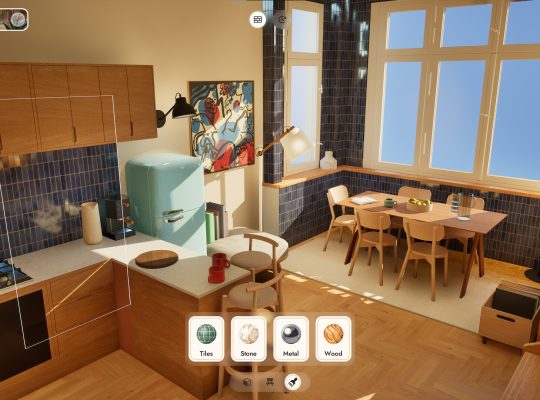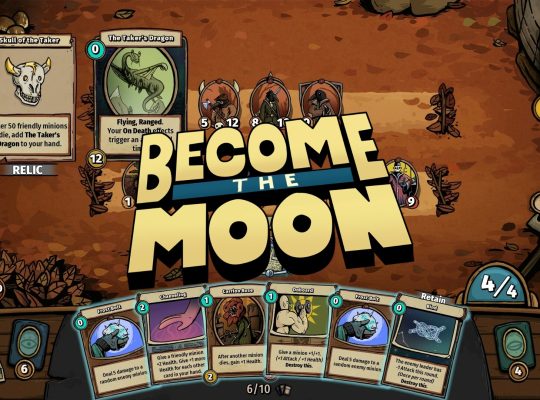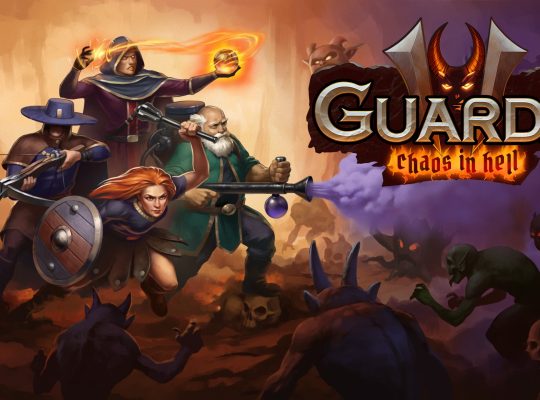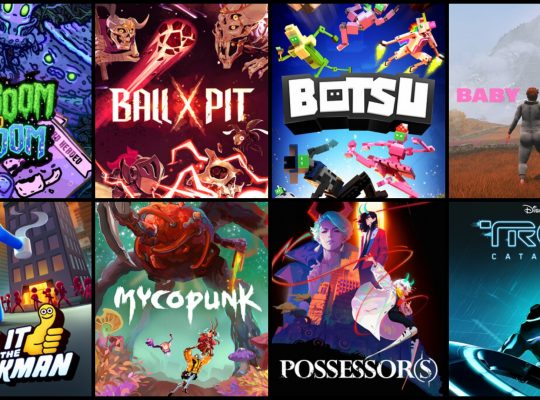- DEVELOPER: Seizo Games
- PUBLISHER: 2 Left Thumbs
- PLATFORMS: PC
- GENRE: Rougelike / Deckbuilder
- RELEASE DATE: February 10, 2025
- STARTING PRICE: 9,75 €
- REVIEWED VERSION: PC
Novus Orbis is a roguelike deckbuilder that stands out in a crowded genre with its unique combo system and strategic depth. Developed with a clear love for card games, it offers a fresh take on deckbuilding by introducing mechanics that encourage careful planning and synergy. While the game is challenging and rewarding, it also has some flaws that might not appeal to everyone.
You are tasked with exploring the last remnants of a broken world, battling enemies, and uncovering secrets to restore order. The narrative serves as a backdrop for the gameplay, providing just enough context to keep you engaged without overshadowing the card battles. The game’s focus is on its mechanics and replayability, and it delivers on that front with a wealth of content to discover.
The combination system is the core of Novus Orbis
The combo system is the heart of Novus Orbis. Each card has a cost and a combo value, and playing cards in the right order unlocks their full potential. This adds a layer of strategy, as you must carefully plan your moves to maximize your deck’s effectiveness. Breaking a combo can also be beneficial in certain situations, giving you flexibility in how you approach each battle. In general, mastering the combo system is highly rewarding and never feels overly punishing or difficult to control. However, success can sometimes depend on RNG and a bit of luck. That said, the game’s emphasis on strategy makes planning crucial, choosing the right cards is always the key.
Enemies in Novus Orbis operate on a countdown system. Every time you play a card or end your turn, the countdown decreases, bringing enemies closer to attacking. This mechanic forces you to think ahead and decide whether to play more cards or end your turn early to avoid triggering enemy attacks. Despite the game’s decently crafted systems, I can’t stress enough how punishing it can be. Some enemies feel outright frustrating, like the ones that reflect damage back at you, which is just plain annoying.
Bosses, too, become overly repetitive because you’ll die frequently and have to face them repeatedly. While trial and error is a core part of the experience, in my 10-hour playthrough, I never managed to beat the game. I always got stuck at the third boss, unable to defeat him. This highlights how powerful bosses and mini-bosses are, each with their own combos and mechanics. Without the right cards and a strong start, these encounters can feel unnecessarily punishing.
This isn’t necessarily a bad thing, challenging games are often the most rewarding because they push you to refine your strategies, optimize your deck, and think creatively. No matter how tough the situation, there’s always a way to overcome it. The game offers over 100 cards per two classes, divided into six types: Attack, Skill, Equipment, Item, Special, and Affliction. This variety allows for endless experimentation and deck customization. However, the game’s focus on scaling builds means that individual card choices become less impactful as you progress, which can make later stages feel less dynamic.




Unique system of blessings and relics
One of my favorite aspects of the game is the blessings or relic system. Blessings and relics are powerful upgrades that can significantly enhance your character, earned from bosses, special rooms, and secret interactions. Pets, on the other hand, provide additional support by attacking, healing, or buffing you every turn. Once you understand how blessings work, it becomes clear that prioritizing them is often the best strategy. For example, choosing a blessing that grants +2 evasion can make defeating the second and third bosses much easier.
Novus Orbis also heavily relies on status effects. The more strength or defense buffs you accumulate, the better your chances of winning. The game is filled with hidden card interactions and events, which add depth and flavor but can also be frustrating. Some interactions are unclear, and the consequences of your choices can feel arbitrary. I’m not a big fan of rooms that randomly heal you or deal damage. While the game sometimes indicates whether enemies are weaker or stronger, you never truly know what to expect when entering a new area.
The most effective strategy, at least for me, is to aim for as many mini-boss and boss victories as possible. I particularly enjoyed defeating a Mimic, and as mentioned earlier, the stronger your status effects, the easier it becomes to win. This made me question the importance of cards, as they don’t seem to drastically impact gameplay, likely because they’re so well-balanced.
What definitely bothers me is the progression system, specifically the way you unlock new cards. To unlock new cards, you need to complete achievements, or specific challenges. While this system is interesting, unlocking new content seems overly difficult. After 10 hours of play, I’ve only completed 30% of what’s required, which shows that the game doesn’t reward your effort quickly. It might be a good idea to make this process a bit easier or faster, as not everyone has the time to complete every achievement.




Ending thoughts
Visually, Novus Orbis is clean and functional, with a minimalist art style that keeps the focus on the gameplay. The card designs are clear and easy to read, and the animations are smooth. The game’s environments are simple but effective, with a dark, atmospheric aesthetic that fits the broken world theme. The music is pleasant and complements the gameplay, though it can become repetitive over long play sessions. The sound effects are satisfying, especially during combat, and help to enhance the overall experience.
For fans of deckbuilding games who enjoy a challenge, Novus Orbis is an easy recommendation. Its unique mechanics and high replayability make it a standout title in the genre. However, if you prefer more straightforward gameplay or are put off by trial-and-error mechanics, you might find it less appealing. Overall, Novus Orbis is a well-crafted game that pushes the boundaries of what a deckbuilder can be, and it’s worth checking out for anyone looking for a fresh and challenging experience.
| Pros | Cons |
|---|---|
| Innovative combo system. | Frustrating progression. |
| Very good replayability. | Repetitive enemies. |
| Very challenging game. | It is very difficult to defeat bosses. |
| Very clean and simple graphics. | The game needs to be further balanced. |
Review copy provided by the publisher
3.8









